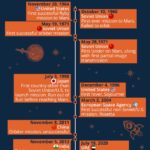Unleashing Young Minds: Space Exploration In Junior Cycle Science
Exploring the Wonders of Space: A Junior Cycle Science Adventure
Have you ever wondered what lies beyond our planet? The vastness of the universe has always captivated our imagination, inspiring countless dreams of space travel and exploration. In the fascinating realm of junior cycle science, students embark on a thrilling journey of discovery, delving into the mysteries of space exploration. The space exploration junior cycle science program offers a unique opportunity for young minds to explore the wonders of the cosmos and ignite their passion for the vast unknown.
What is Space Exploration Junior Cycle Science?
The space exploration junior cycle science program is an innovative educational initiative designed to introduce young students to the fascinating world of space exploration. Through a combination of theoretical knowledge and practical experiences, students are given a comprehensive understanding of the scientific principles that underpin space exploration. The program covers a wide range of topics, including the history of space exploration, the mechanics of spacecraft, the study of celestial bodies, and the potential for future space missions.
2 Picture Gallery: Unleashing Young Minds: Space Exploration In Junior Cycle Science
Who Can Participate?
The space exploration junior cycle science program is open to students in junior cycle, typically aged between 12 and 14 years old. It provides a unique opportunity for young students to engage in hands-on learning experiences that foster scientific curiosity and critical thinking skills. Whether you have a budding astronaut or a curious mind eager to unravel the mysteries of the universe, this program offers an exciting platform for exploration and discovery.
When and Where Does It Take Place?

Image Source: cloudfront.net
The space exploration junior cycle science program is typically offered as part of the school curriculum, with dedicated classes and workshops conducted throughout the academic year. These classes are often held in specialized science labs equipped with state-of-the-art technology to simulate real-life space exploration scenarios. Additionally, field trips to observatories, planetariums, and space centers may be organized to enhance students’ understanding and provide unique opportunities for practical applications.
Why Is Space Exploration Junior Cycle Science Important?
The space exploration junior cycle science program plays a crucial role in shaping the next generation of scientists, engineers, and innovators. Through hands-on experiments and simulations, students develop essential skills such as problem-solving, teamwork, and critical thinking. Furthermore, the program instills a sense of wonder and awe, fostering a lifelong passion for scientific exploration. By igniting young minds with a curiosity for the unknown, space exploration junior cycle science stimulates innovation and prepares students for the challenges and opportunities of the future.
How Does It Work?
The space exploration junior cycle science program is structured to provide a comprehensive understanding of various aspects of space exploration. Students start by studying the history of space exploration, learning about significant milestones and the contributions of pioneers in the field. They then delve into the mechanics of spacecraft, understanding the principles of propulsion, navigation, and life support systems. As the program progresses, students explore the study of celestial bodies, including planets, stars, and galaxies, gaining insights into their characteristics, origins, and evolution. The program also emphasizes the potential for future space missions, inspiring students to envision and contribute to humanity’s future in space.
FAQs about Space Exploration Junior Cycle Science
What are the benefits of participating in the program?
Image Source: fbsbx.com
Participating in the space exploration junior cycle science program offers numerous benefits. Firstly, students develop critical thinking and problem-solving skills, essential for scientific inquiry. Secondly, it fosters teamwork and collaboration, as students often engage in group projects and experiments. Lastly, the program instills a sense of wonder and curiosity about the universe, encouraging students to explore scientific careers and contribute to the progress of space exploration.
What materials and resources are used in the program?
The space exploration junior cycle science program utilizes a variety of materials and resources to enhance students’ learning experience. These may include textbooks, multimedia presentations, interactive simulations, and hands-on experiments. Students may also have access to telescopes, models of spacecraft, and other scientific instruments to deepen their understanding of space exploration.
Are there any specific prerequisites to participate in this program?
The space exploration junior cycle science program does not require any specific prerequisites. However, a strong interest in science, particularly astronomy and physics, can greatly enhance the learning experience. Students with a passion for space exploration or related fields may find this program particularly engaging and rewarding.
What is the duration of the program?

Image Source: studyclix.ie
The duration of the space exploration junior cycle science program can vary depending on the school’s curriculum. Typically, it spans one academic year, with regular classes and workshops conducted throughout that period. However, schools may choose to extend or modify the program to suit their specific requirements and objectives.
Is there any assessment or evaluation involved?
Yes, assessment and evaluation are integral components of the space exploration junior cycle science program. Students may be assessed through written assignments, practical experiments, group projects, and examinations. The evaluation process aims to assess students’ understanding of the scientific concepts taught during the program and their ability to apply them in real-life scenarios.
Space Exploration Junior Cycle Science: Opening New Horizons
The space exploration junior cycle science program offers a breathtaking journey into the mysteries of the universe, inspiring young minds to reach for the stars. By providing a comprehensive understanding of space exploration and fostering scientific curiosity, this program prepares students for the challenges and opportunities that lie ahead. It equips them with the knowledge and skills necessary to contribute to the future advancements in space science and exploration. If you have a passion for the cosmos and a desire to unravel its secrets, the space exploration junior cycle science program is your gateway to an extraordinary adventure.
This post topic: Constellation Guides

